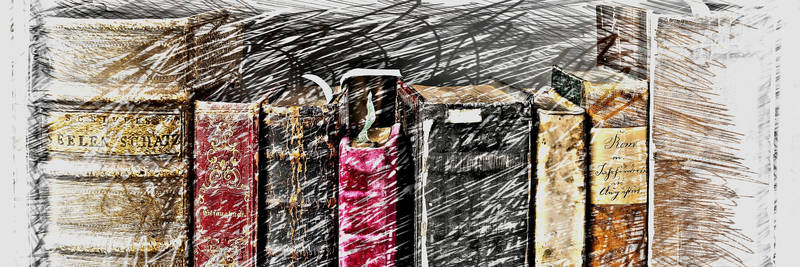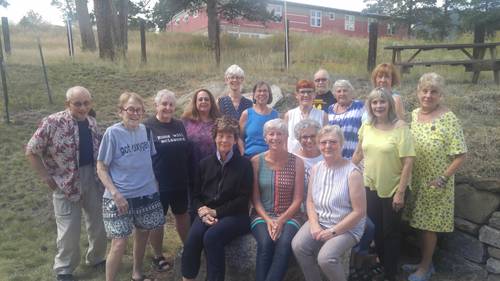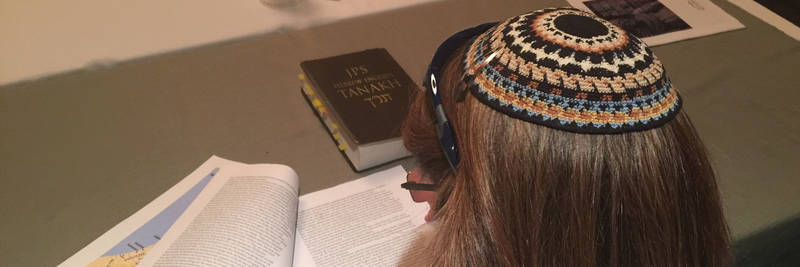Adult Education
Adult Education
Busy yourself as much as possible with the study of the divine things, not to know them merely, but to do them; and when you close the book, look around you, look within you, to see if your hand can translate into deed something you have learned. - Moses of Evreux
In seeking wisdom the first step is silence,
The second: listening,
The third: remembering,
The fourth: practicing,
The fifth: teaching others.
- Ibn Gabirol
Upcoming in Adult Education
-
Wednesday ,
MayMay 21 , 2025 On the Run with Joanne Greenberg
On the Run with Joanne Greenberg
Wednesday, May 21st 7:00p to 8:00p
-
Tuesday ,
JunJune 3 , 2025 CBE Book Club
CBE Book Club
Tuesday, Jun 3rd 6:00p to 7:00p
Join us for a discussion about CBE's book of the month!
Adult Hebrew

SHALOM!
Feeling rusty? Never learned but want to? Just curious?
Our new adult Hebrew program is geared toward those interested in gaining comfort, familiarity and potentially fluency in the Hebrew language and liturgy.
Explore modern conversational Hebrew and develop decoding text and prayer skills, this class meets Sundays in person and via Zoom 5-6PM. All levels welcome.
Register here to learn with CBE member Elizabeth Moore. Class fee is $54.00; the book is $28. Classes start October 13. See CBE calendar for specific dates.
Mussar

Meets year-round [almost] every Thursday, 1PM – 2:30 PM at CBE.
What is Mussar? Mussar is a traditional Jewish ethical-spiritual discipline that is in the process of being rediscovered in our time. The method guides us in bringing positive virtues or ‘soul traits’ to bear in our daily lives. This class has had on-going, enthusiastic attendance since 2008. Each session is divided into two parts. In the first hour, we combine text study, lecture and discussion around a particular midah [soul-trait], such as compassion, humility, joy, silence, honor, patience or gratitude. The second part of the class is devoted to supporting one another as one person volunteers to share a personal challenge or situation that they would like to approach from a mussar perspective. This class prompts curiosity about the attributes of divinity while offering insight into the human psyche, practical guidance for daily living and growing our moral-spiritual selves, and especially mutual support and friendship. Come and see why this class has attracted such a devoted following. And if you cannot make the midday time-slot, get on the e-mail list to receive weekly teachings to support your on-going study and practice.
CBE Book Club
 October: Catch-67: The Left, the Right, and the Legacy of the Six-Day War. Since the Six-Day War, Israelis have been entrenched in a national debate over whether to keep the land they conquered or to return some, if not all, of the territories to Palestinians. In a balanced and insightful analysis, Micah Goodman deftly sheds light on the ideas that have shaped Israelis' thinking on both sides of the debate, and among secular and religious Jews about the Israeli-Palestinian conflict.
October: Catch-67: The Left, the Right, and the Legacy of the Six-Day War. Since the Six-Day War, Israelis have been entrenched in a national debate over whether to keep the land they conquered or to return some, if not all, of the territories to Palestinians. In a balanced and insightful analysis, Micah Goodman deftly sheds light on the ideas that have shaped Israelis' thinking on both sides of the debate, and among secular and religious Jews about the Israeli-Palestinian conflict.
 December: People of the Book. One of the earliest Jewish religious volumes to be illuminated with images, the Sarajevo Haggadah survived centuries of purges and wars thanks to people of all faiths who risked their lives to safeguard it. In the hands of Hanna Heath, an impassioned rare-book expert restoring the manuscript in 1996 Sarajevo, it yields clues to its guardians and whereabouts: an insect wing, a wine stain, salt crystals, and a white hair. While readers experience crucial moments in the book's history through a series of fascinating, fleshed-out short stories, Hanna pursues its secrets scientifically, and finds that some interests will still risk everything in the name of protecting this treasure.
December: People of the Book. One of the earliest Jewish religious volumes to be illuminated with images, the Sarajevo Haggadah survived centuries of purges and wars thanks to people of all faiths who risked their lives to safeguard it. In the hands of Hanna Heath, an impassioned rare-book expert restoring the manuscript in 1996 Sarajevo, it yields clues to its guardians and whereabouts: an insect wing, a wine stain, salt crystals, and a white hair. While readers experience crucial moments in the book's history through a series of fascinating, fleshed-out short stories, Hanna pursues its secrets scientifically, and finds that some interests will still risk everything in the name of protecting this treasure.
 February: The Cost of Free Land: Jews, Lakota, and an American Inheritance. Growing up, Rebecca Clarren only knew the major plot points of her tenacious immigrant family’s origins. Her great-great-grandparents, the Sinykins, and their six children fled antisemitism in Russia and arrived in the United States at the turn of the 20th century, ultimately settling on a 160-acre homestead in South Dakota. What none of Clarren’s ancestors ever mentioned was that their land, the foundation for much of their wealth, had been cruelly taken from the Lakota by the United States government. In The Cost of Free Land, Clarren melds investigative reporting with personal family history to reveal the intertwined stories of her family and the Lakota, and the devastating cycle of loss of Indigenous land, culture, and resources that continues today.
February: The Cost of Free Land: Jews, Lakota, and an American Inheritance. Growing up, Rebecca Clarren only knew the major plot points of her tenacious immigrant family’s origins. Her great-great-grandparents, the Sinykins, and their six children fled antisemitism in Russia and arrived in the United States at the turn of the 20th century, ultimately settling on a 160-acre homestead in South Dakota. What none of Clarren’s ancestors ever mentioned was that their land, the foundation for much of their wealth, had been cruelly taken from the Lakota by the United States government. In The Cost of Free Land, Clarren melds investigative reporting with personal family history to reveal the intertwined stories of her family and the Lakota, and the devastating cycle of loss of Indigenous land, culture, and resources that continues today.
 April: The Genius of Israel. Why do Israelis have among the world’s highest life expectancies and lowest rates of “deaths of despair” from suicide and substance abuse? Why is Israel’s population young and growing while all other wealthy democracies are aging and shrinking? How can it be that Israel, according to a United Nations ranking, is the fourth happiest nation in the world? Why do Israelis tend to look to the future with hope, optimism, and purpose while the rest of the West struggles with an epidemic of loneliness, teen depression, and social decline? Widely admired for having the world’s highest density of high-tech start-ups, Israel’s greatest innovation may not be a technology at all, but Israeli society itself. Understanding how a country facing so many challenges can be among the happiest provides surprising insights into how we can confront the crisis of community, human connectedness, and purpose in modern life.
April: The Genius of Israel. Why do Israelis have among the world’s highest life expectancies and lowest rates of “deaths of despair” from suicide and substance abuse? Why is Israel’s population young and growing while all other wealthy democracies are aging and shrinking? How can it be that Israel, according to a United Nations ranking, is the fourth happiest nation in the world? Why do Israelis tend to look to the future with hope, optimism, and purpose while the rest of the West struggles with an epidemic of loneliness, teen depression, and social decline? Widely admired for having the world’s highest density of high-tech start-ups, Israel’s greatest innovation may not be a technology at all, but Israeli society itself. Understanding how a country facing so many challenges can be among the happiest provides surprising insights into how we can confront the crisis of community, human connectedness, and purpose in modern life.
 May: On the Run is a memoir of the thirteen years Joanne Greenberg spent as a volunteer firefighter and EMT, serving on Colorado’s most dangerous mountain roads and Interstate highways. She was one of the first women in America to join a firefighting team.
May: On the Run is a memoir of the thirteen years Joanne Greenberg spent as a volunteer firefighter and EMT, serving on Colorado’s most dangerous mountain roads and Interstate highways. She was one of the first women in America to join a firefighting team.
 June: Songs for the Broken Hearted by Ayelet Tsabari. 1950. Thousands of Yemeni Jews have immigrated to the newly founded Israel in search of a better life. In an overcrowded immigrant camp in Rosh Ha’ayin, Yaqub, a shy young man, happens upon Saida, a beautiful girl singing by the river. In the midst of chaos and uncertainty, they fall in love. But they weren’t supposed to; Saida is married and has a child, and a married woman has no place befriending another man.
June: Songs for the Broken Hearted by Ayelet Tsabari. 1950. Thousands of Yemeni Jews have immigrated to the newly founded Israel in search of a better life. In an overcrowded immigrant camp in Rosh Ha’ayin, Yaqub, a shy young man, happens upon Saida, a beautiful girl singing by the river. In the midst of chaos and uncertainty, they fall in love. But they weren’t supposed to; Saida is married and has a child, and a married woman has no place befriending another man.
1995. Thirty-something Zohara, Saida’s daughter, has been living in New York City—a city that feels much less complicated than Israel, where she grew up wishing that her skin was lighter, that her illiterate mother’s Yemeni music was quieter, and that the father who always favored her was alive. She hasn’t looked back since leaving home, rarely in touch with her mother or sister, Lizzie, and missing out on her nephew Yoni’s childhood. But when Lizzie calls to tell her their mother has died, she gets on a plane to Israel with no return ticket.
Soon Zohara finds herself on an unexpected path that leads to shocking truths about her family—including dangers that lurk for impressionable young men and secrets that force her to question everything she thought she knew about her parents, her heritage, and her own future.
 August: Buried Rivers by Ellen Korman Mains. o the chagrin of her parents, Polish Jews who survived the Holocaust, the author became a Buddhist at the age of 19. More than three decades later, on a German train, Ellen felt the presence of spirits who had died in the Holocaust and had lost their trust in basic goodness. Sixty years after the liberation of Auschwitz, their plea for help sent her on a series of life-changing journeys to Poland to reconcile the Holocaust with basic goodness. Would years of Buddhist meditation prove helpful to her people instead of a betrayal?
August: Buried Rivers by Ellen Korman Mains. o the chagrin of her parents, Polish Jews who survived the Holocaust, the author became a Buddhist at the age of 19. More than three decades later, on a German train, Ellen felt the presence of spirits who had died in the Holocaust and had lost their trust in basic goodness. Sixty years after the liberation of Auschwitz, their plea for help sent her on a series of life-changing journeys to Poland to reconcile the Holocaust with basic goodness. Would years of Buddhist meditation prove helpful to her people instead of a betrayal?
In 2006, she travels to Poland, the Holocaust’s largest graveyard, and to her mother’s city of Łódź, to reconnect with her family's tragic history and later moves to Łódź to study Polish at a language school called “Babel,” where she is the sole American. With no living elders to consult, she relies on an account dictated by her uncle, an Auschwitz survivor, for clues to her family’s past. As she retraces her mother’s and uncle’s steps through Europe and walks in places where her ancestors lived for centuries, she stumbles into a mysterious stream of love—if only she can receive it.
Fri, April 18 2025
20 Nisan 5785
The midot of the month of March are Regret (chirtah) and Anger (caas).
Useful Links
- Mi Sheberach Form (prayer list)
- Make a Donation
- Order a Yahrzeit Plaque
Today's Sefirah Count Is 5
| היום חמשה ימים לעמר |
Today's Calendar
| Chol Hamoed Pesach |
| Friday Morning Meditation : 9:00am |
: 10:00am |
| Candle Lighting : 7:32pm |
Friday Night
| Candle Lighting : 7:32pm |
Shabbat Day
| Candle Lighting : 8:25pm |
Upcoming Programs & Events
Apr 25 |
Apr 26 |
Apr 29 |
May 2 |
May 3 |
Candle Lighting
| Friday, Apr 18, 7:32pm |
Havdalah
| Sunday, Apr 20, 8:34pm |
Chol Hamoed Pesach
| Friday, Apr 18 |


